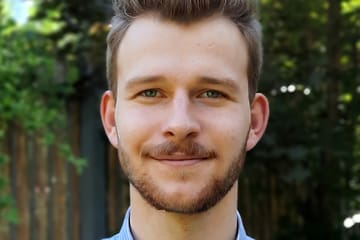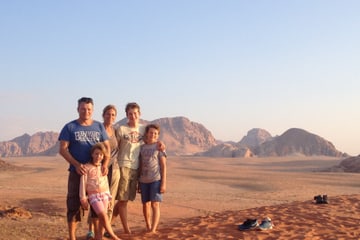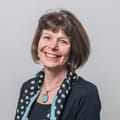An international childhood? It was a great start in life!
During the Forum cinfo 2021, we held a session to discuss the challenges and opportunities associated with raising a family while working in international development. The son of a Swiss diplomat mother and a development professional father, Matteo Marti views his experience in an almost wholly positive light.

Career tracking at cinfo indicates that currently more women than men apply for internships and similar junior positions in international cooperation. However, as these women progress into their 30s and early 40s, a relatively low proportion of them move into senior positions – and many drop out altogether. One issue highlighted by many women is the difficulty of combining family and professional life. There is often a perception that moving multiple times in childhood will be damaging. Matteo argues the opposite.
From one country to another...
Matteo was born in Switzerland, but his family moved to New Delhi, India when he was four years old. After a four-year period, they returned to the family home in Morat, Switzerland but then moved again to Jerusalem in 2013 when he was 13. Having passed his International Baccalaureate in Jerusalem, Matteo chose to study Architecture and Environment at the University of Sydney in Australia, where he lived for three years. He is now studying for a Master’s degree in "Governing the Large Metropolis” at SciencesPo, Paris with the intention of following a career in international urban development.
A broad perspective and rich cultural awareness
Matteo points to how his early exposure to different cultures and perspectives shaped his outlook on life. From India, he retains clear memories of joyful festivals (especially the festival of colour, Holi), and of river rafting holidays. He was also very struck by the poverty that he witnessed outside the car window when travelling through the streets of Delhi, and became quickly conscious of his privilege, “of being treated as someone special”. His early sense of inequalities was honed as a teenager in Jerusalem – where he witnessed and analysed the social injustices around him. This played out, for example, in the way his Jewish and Palestinian friends lived and were treated.
His early sense of inequalities was honed as a teenager in Jerusalem – where he witnessed and analysed the social injustices around him.

An ability to adapt and make friends quickly
Being plucked from one environment and transported to another at regular intervals in childhood can be destabilising, at least on a temporary basis. Matteo admits that at the age of 13, he was initially resentful about the family move from Morat to Jerusalem. He had by then established a strong local friendship group that he did not wish to leave. On the other hand, one learns to adapt quickly when moving to a new place. As a child attending an international school, this is aided by the fact that both classmates and teachers understand and empathise with the experience of the new arrival. The obvious testimony to Matteo’s ability to adapt to new circumstances, though, is his choice at the age of 18 to study in Australia, on the other side of the world to his family.
Importantly, friends left behind on a move from one country to another are not necessarily lost. Matteo’s friends in Switzerland, seen intermittently on holidays, have remained good friends to this day. But in addition, he has a whole network of friends spread across the globe – social media giving huge opportunities to keep in touch, even if regular physical meetings are not possible.
The obvious testimony to Matteo’s ability to adapt to new circumstances, though, is his choice at the age of 18 to study in Australia, on the other side of the world to his family.
An international career perspective
For Matteo, his parents’ ambition and commitment to contribute positively to global society has become his own – with his own interpretation of what represents an interesting career specialisation. Complete fluency in written and spoken English and French (both used in the family and perfected at school) are of help, but it is his global exposure from an early age that shaped his choice.
His exposure to an international environment from an early age has shaped his career choices.



